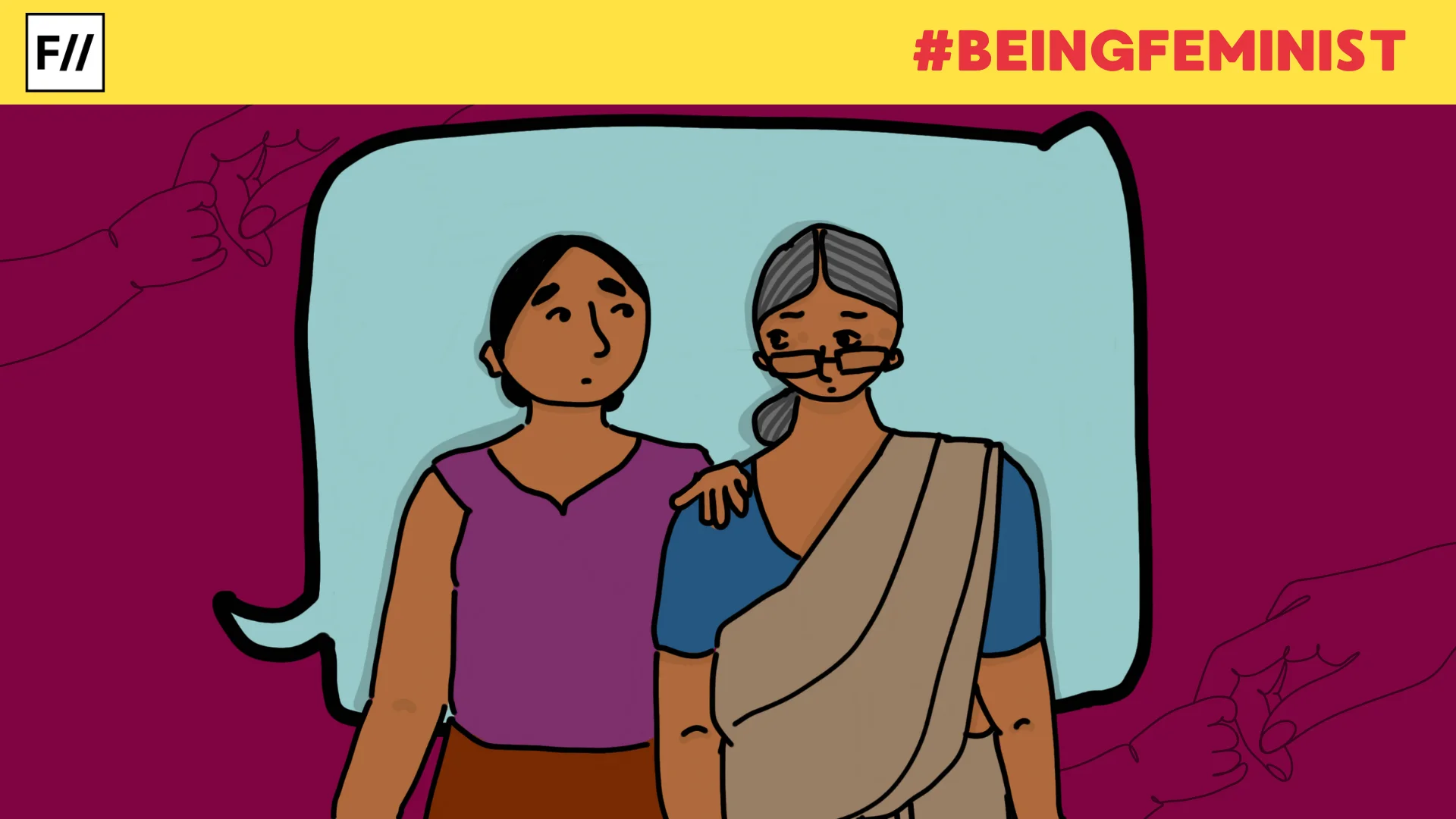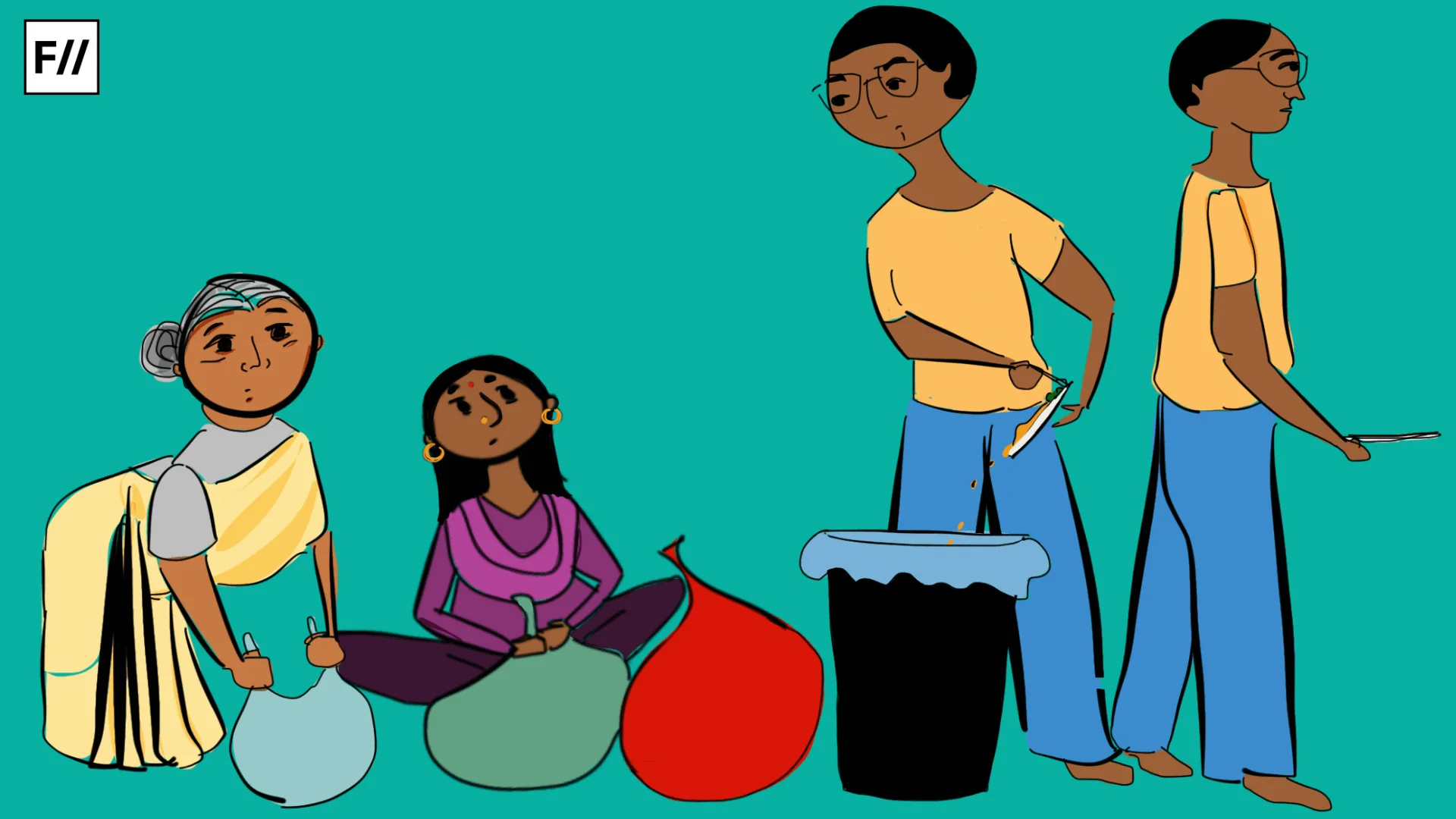It took me several months of living alone to realise I do not know how to rest. When I have a rare free afternoon, I begin deep cleaning. I clean corners I cleaned the day before. I empty drawers and refill them. I scrub surfaces with intensity, not because they are dirty, but because I cannot stand the idea of doing nothing. My restlessness disguises itself as responsibility. Somewhere in my body, a silent rule is coded: rest is earned, not assumed.
This discomfort is not personal. It is produced. In one of her essays, Judith Butler argues that gender is something we do, not something we are. That performance plays out in subtle rituals, like the quiet panic I feel when I am unoccupied.
Womanhood, household labour and rest
Womanhood, in many Indian households, is first rehearsed through labour. Not only physical labour, but emotional vigilance as well. The inability to sit, to take space, to waste time, begins at home.

Watching mothers who hover over dining tables instead of eating with the family. Watching elder sisters who “help” while brothers are “busy”. Watching women in public spaces always justifying their presence, buying something, accompanying someone, or getting somewhere. Always with purpose. Rest, for women, is never without narrative. It must be explained, excused, or shortened.
Internalised expectations
Even now, when I lie down, a list appears in my mind. Did I reply to that email? Have I done enough reading today? Should I be writing? I rarely ask myself whether I am tired. Fatigue has never been a valid reason. Only results matter. That is the condition of being brought up female under patriarchy: you are trained to measure your worth through service.
Even now, when I lie down, a list appears in my mind. Did I reply to that email? Have I done enough reading today? Should I be writing? I rarely ask myself whether I am tired. Fatigue has never been a valid reason. Only results matter.
Sara Ahmed, in Living a Feminist Life, writes, “When you expose a problem, you pose a problem.” Choosing to stop, to not produce, to not fix or perform, is read not as need but as resistance. And that is precisely what makes stillness feel wrong.
The urge to prove usefulness lingers in spaces where no one is watching. My house remains untouched by guests for weeks, but I am still worried about how it looks. Not for others, but for myself. As if the untidiness of the shelf says something about my value. As if my body, lying down quietly, will announce a failure of discipline.
Growing up, I rarely saw the women in my family truly rest. My mother folded laundry while watching TV; my grandmother hummed prayers while cooking. Even their stillness had a function. Doing nothing wasn’t part of the script.

Over time, I absorbed that rhythm. Now, if I have a slow day, I find myself tallying tasks to justify it. The urge to prove I’ve “earned” my time feels inherited, like a quiet legacy passed from one woman to another.
Feminist spaces, rest and busyness
Even feminist spaces often reproduce this glorification of busyness. We applaud multitasking and survival exhaustion. We turn resilience into aesthetic. Rest is rarely championed as its own right. The slow, quiet, ordinary act of doing nothing does not make it to slogans. Yet, as Audre Lorde highlights, “Caring for myself is not self-indulgence; it is self-preservation.” But self-preservation, for women, is not instinctive. It has to be learnt. Slowly. Guiltily.
Even feminist spaces often reproduce this glorification of busyness. We applaud multitasking and survival exhaustion. We turn resilience into aesthetic. Rest is rarely championed as its own right. The slow, quiet, ordinary act of doing nothing does not make it to slogans.
Every time I try to pause, I have to wrestle with an internalised belief that I am wasting time. This belief has consequences. It chips away at my creative life. Instead of writing a poem, I fold clothes. Instead of sitting with an idea, I sweep the floor. The silence that could nourish thought becomes something to eliminate.
I often wonder what I could create if I allowed myself boredom. Virginia Woolf famously asked for “a room of one’s own,” but I think we also need time of our own. Not scheduled time, not compensated time. Unclaimed, unproductive time. Time in which nothing is expected.
Practicing stillness
Mary Oliver once asked, “Tell me, what is it you plan to do with your one wild and precious life?” I definitely do not want to say “clean the bookshelf again.” Sometimes I light a candle and lie on the floor, just to practise stillness. Sometimes I fail. The urge to do something wins. But slowly, I am learning to sit with the discomfort. To stay. To believe that doing nothing can be valuable. Not as preparation, not as recovery, but as presence.
This is not a moral essay. I am not asking women to stop moving. I am asking why we cannot allow ourselves to stop. Why must every act be productive? Why must every hour be justified? What does it mean to live without urgency? These questions sit at the heart of my feminist practice.
Stillness should not be radical. But for many women, it is. And for now, choosing to be still, even for a moment, is my quiet refusal.
About the author(s)
Ananya Shukla is a development communication researcher and poet currently pursuing her Master's at Jamia Millia Islamia. Her work bridges academia and creative expression, using media like documentaries and poetry to explore how storytelling can drive social change.






Wow. This was so relatable – I gobbled this up faster than the puris I’ve seen my mumma take to our guests. Rest is such a radical practice for me and I fail everyday. I wonder if you have read, ‘We Will Rest’ by Tricia Hersey – complete guide for our tired souls. Thank you for this piece. So good.
Great work and very well written!!
Thank you Sanskriti! Means alot to me 🙂
So apt. Lovely and thanks for sharing. It’s 100% relatable, as a older person who has just retired I find myself often ‘wasting my time’ and feeling guilty. This is so helpful.